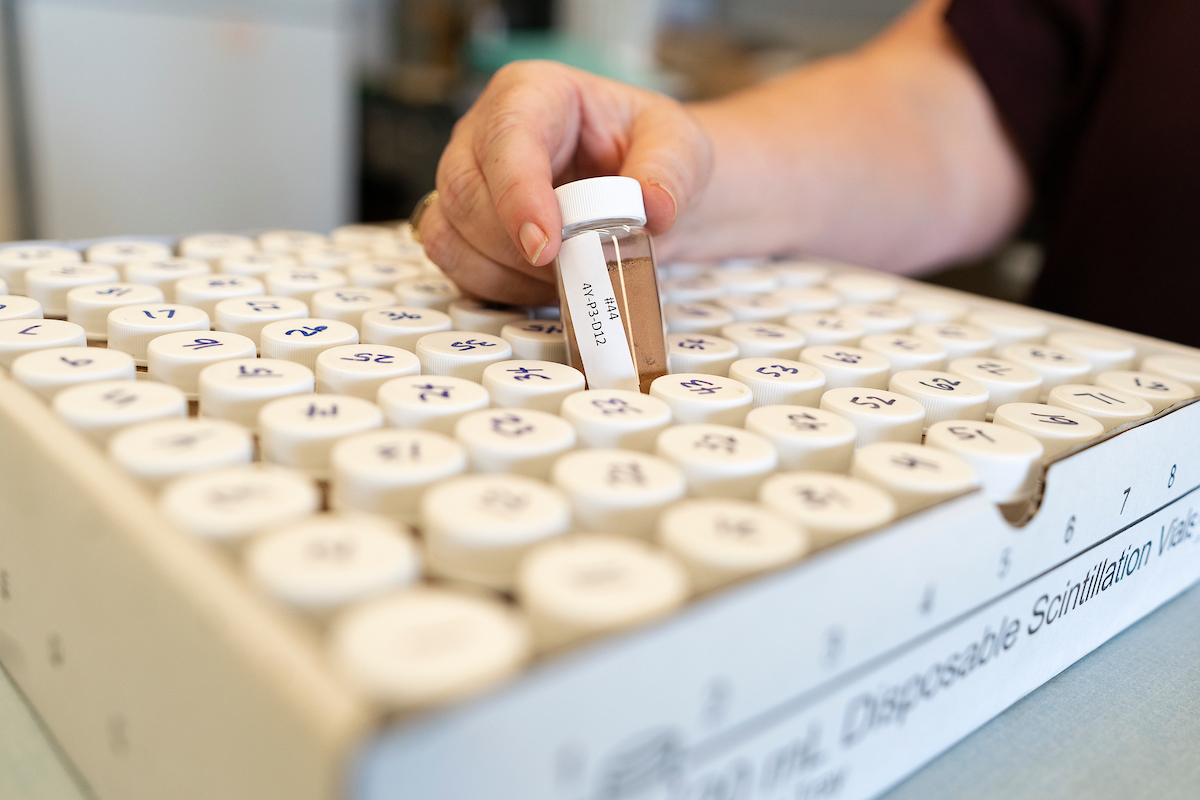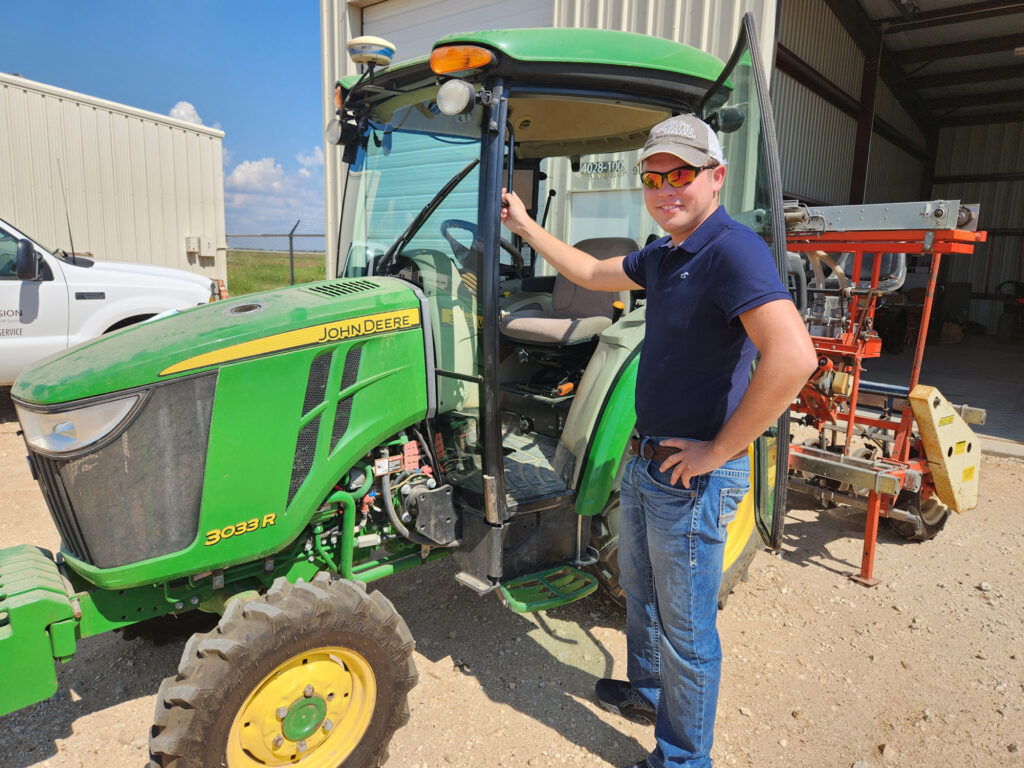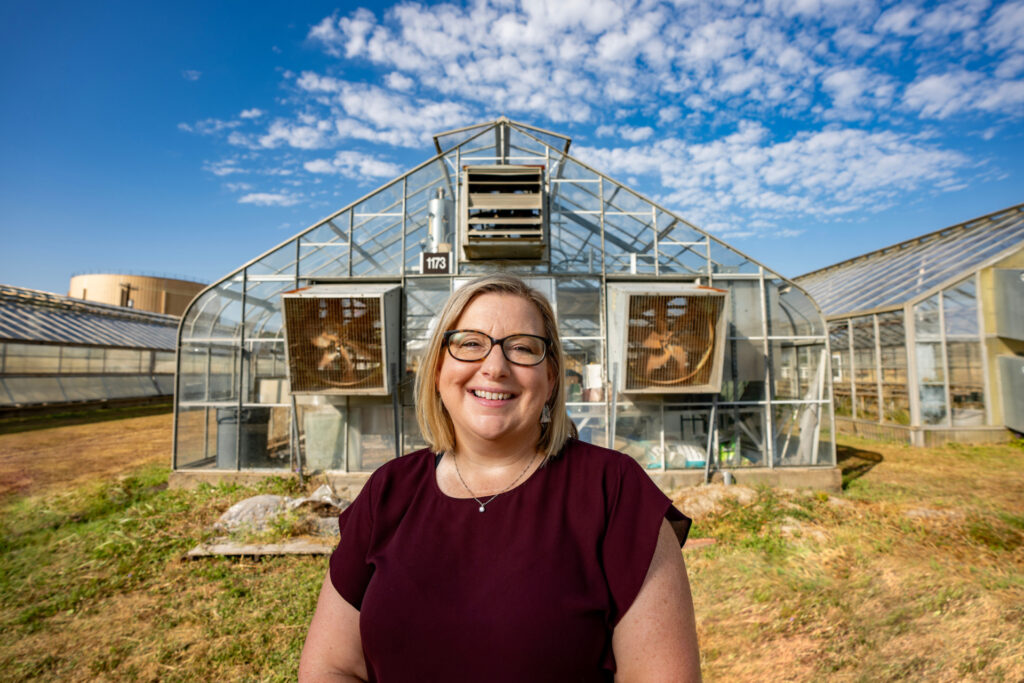
Research in Soil and Crop Sciences
As a Tier One research institution, Texas A&M is dedicated to conducting sound, credible and innovative research. In the Department of Soil and Crop Sciences, we’re devoted to doing just that. Our faculty, students and research associates are working to develop applicable and innovative solutions to management needs, problems and policies related to natural resource issues in Texas and beyond.
We’re interested in evidence-based science that speaks for itself in the field. Our faculty are leading the field with expertise areas in management strategies, economics and the legal and regulatory considerations associated with stewardship of natural resources. All of our research aims to advance crop and soil sciences today, while impacting policy that shapes the future.
Areas of Research Expertise
We are a collaborative faculty with a wide scope of interests, bringing innovation and creativity to solving complex problems at the intersection of agriculture, economics, and agribusiness.
Bioenergy
The department is at the forefront of pioneering bioenergy research, exploring innovative methods to harness renewable energy sources from organic matter. This encompasses a wide spectrum of studies, from optimizing biofuel production processes to investigating the potential of novel bioenergy crops, contributing significantly to the sustainable energy landscape.
Corn
Texas farmers produce more than 200 million bushels of corn on 2.0 million acres every year. Texas corn, which is used in feeds, foods, and industrial products, contributes annually more than 1.2 billion dollars to Texas agriculture economy. Nation wide, corn is the largest cash crop with 85 million acres of corn harvested each year producing 7 to 9 billion bushels.
Cotton
Texas leads the U.S. in cotton production, and is the state’s leading cash crop, supporting an economic impact of over $5 billion. Texas annually produces about 25% of the entire U.S. crop and plants about 6 million acres! That’s over 9,000 square miles of cotton fields, or a cotton field the size of New Hampshire!
Crop Physiology
The plant physiology program studies how the plant functions in its environment, and then uses this knowledge to establish crop management alternatives for increased economic yield and environmental friendliness. They also use this information to establish screening procedures to be used in varietal improvement.
Environmental Physics
Environmental Physics is scientific discipline that focuses on determination of how environmental factors affect biological and physical processes in agricultural and natural ecosystems. Environmental physicists seek to discover the underlying principles that govern mass and energy transport in the soil-plant-atmosphere system by observing the behavior of organisms and objects in the environments in which they reside, and mathematically describing the behavior in terms of environmental parameters such as radiant energy, temperature, and concentrations of water, nutrients, and other natural and manmade compounds.
Forages
Forages are both native and introduced plants that provide nutrients for domestic animals and wildlife while enhancing ecosystem services for the human population. Forages foster sustainability of land areas in Texas. Forages are the foundation of the Texas livestock industry since beef cattle consume 70% of their lifetime diet while on pastures and rangelands. Forages are the only crop found in each of Texas’ 254 counties.
Industrial Hemp
The department is actively engaged in cutting-edge industrial hemp research, delving into its diverse applications and potential economic benefits. Studies range from optimizing cultivation techniques to exploring novel uses in textiles, biofuels, and beyond, positioning our department at the forefront of this emerging field.
Peanut
Texas produces a uniquely high-quality peanut due to the fact that the peanuts grown in the state are almost 100% irrigated production. Peanut production has a significant benefit to the Texas economy, with an annual crop value of $140 million, and an overall economic benefit of approximately $1 billion. In addition to being the only state to grow all 4 market types (Runner, Spanish, Virginia, and Valencia) we also produce a 100% high oleic crop. High oleic peanuts have been found to reduce the risk of cardiovascular disease as well as lower triglycerides.
Pedology, Biogeochemistry and Mineralogy
The pedology research program emphasis encompasses a wide area of activities statewide and international. Many of these activities are done in cooperation with colleagues at other institutions or in-country collaborators.
Plant Breeding
Plant breeding programs in Soil and Crop Sciences seek to alter the genetic composition of plants to improve crop characteristics. Our plant breeding and genetics faculty members rely on conventional and molecular breeding techniques to modify specific targets such as yield potential, crop quality, biotic and abiotic stress resistance, and/or reduced crop production costs.
Plant Genomics & Biotechnology
The molecular breeding program utilizes DNA marker technology to aid the efficient and effective incorporation of valuable traits into improved crop cultivars. Many traits important in the development of cultivars can be difficult to measure or are environmentally sensitive, which makes it difficult to make progress in breeding programs.
Precision Agriculture
Precision agriculture research focuses on leveraging cutting-edge technologies, such as satellite imagery, drones, and sensors, to enhance the efficiency and sustainability of farming practices. By employing data-driven insights, precision agriculture aims to optimize resource utilization, improve crop yields, and reduce environmental impact, ushering in a new era of smart and technologically advanced farming.
Rice
Portions of the South Texas coast, especially around the Beaumont area, have soils and abundant water which makes them ideal for rice production. The Texas A&M Research and Extension Center at Beaumont is located in extreme southeast Texas, just 30 miles from the Gulf of Mexico to the south, and 30 miles from the Louisiana border to the east. The Beaumont Center provides educational support for rice production, as well as the alternative crops associated with rice.
Soil Chemistry and Fertility
Soil chemistry is a discipline of soil science concerned with biogeochemical processes in soils and their influence on the bioavailability, mobility, distribution, and chemical forms of both plant essential elements and contaminants in the terrestrial environment.
Soil Microbiology
The soil microbiology program addresses a variety of research areas in -agricultural, natural and urban/suburban environments. Projects have ranged from basic research on microbial ecology to applications of microbial systems for reclamation of disturbed lands, remediation of contaminated soils and wastewaters, improving soil and plant health, and ecosystem services. We continue to focus on current and emerging issues relevant to understanding and solving problems in agricultural and urban/suburban settings.
Sorghum
In Texas, grain sorghum is grown on about 3 million acres annually. Production occurs across the state with large areas of production in South Texas, the Coastal Bend and the Panhandle. In addition to grain, forage sorghum is planted for grazing, hay and silage. The Texas panhandle is produces most of the hybrid sorghum seed planted in the United States.
Weed Science
Texas agriculture is a $15 billion industry. Weeds impose more losses in crops than all other pests. The Weed Science Program based at College Station and Lubbock provide integrated research and extension work in herbicide development and applied technologies, weed ecology and economics of competition, herbicide fate and environmental stewardship.
Turfgrass
Texas is a major urban state with nearly 88 percent of Texans living in 25 federally designated urban areas. Houston, the Dallas/Fort Worth Metroplex, and San Antonio rank among the 12 most populated regions of the United States. Turfgrasses serve many functions in urban and suburban landscapes.
Water
Water is one of Texas’ most critical natural resources, so maintaining the health and sustainability of the Texas water sources and aquifers is vitally important. Our educational resources and regional experts teach Texans about water conservation, management and quality while protecting the state’s rivers, streams, lakes, bays and oceans.
Wheat & Small Grains
Texas is the ninth largest wheat-producing state in the nation, harvesting 2.3 million acres annually. Wheat has a cash value $355 million to farmers and generates $973 million for the economy. Additionally, small grain pasture plays a key role to the Texas beef cattle industry with excellent forage potential and high quality.
Soil and Crop Sciences Research in the News

New AgriLife Extension small grains specialist returns to Department of Soil and Crop Sciences
Brandon Gerrish, Ph.D., started recently as the new Texas A&M AgriLife Extension Service statewide small grains and oilseed specialist, but there’s very little new to Gerrish about the job.

Changing the world through the science of soil
As an undergraduate bioenvironmental sciences major, Julie Howe ’95 ’99 wasn’t interested in taking the required introductory soil science class. But what she learned about soil opened her eyes to potential solutions to many of our society’s greatest environmental challenges.